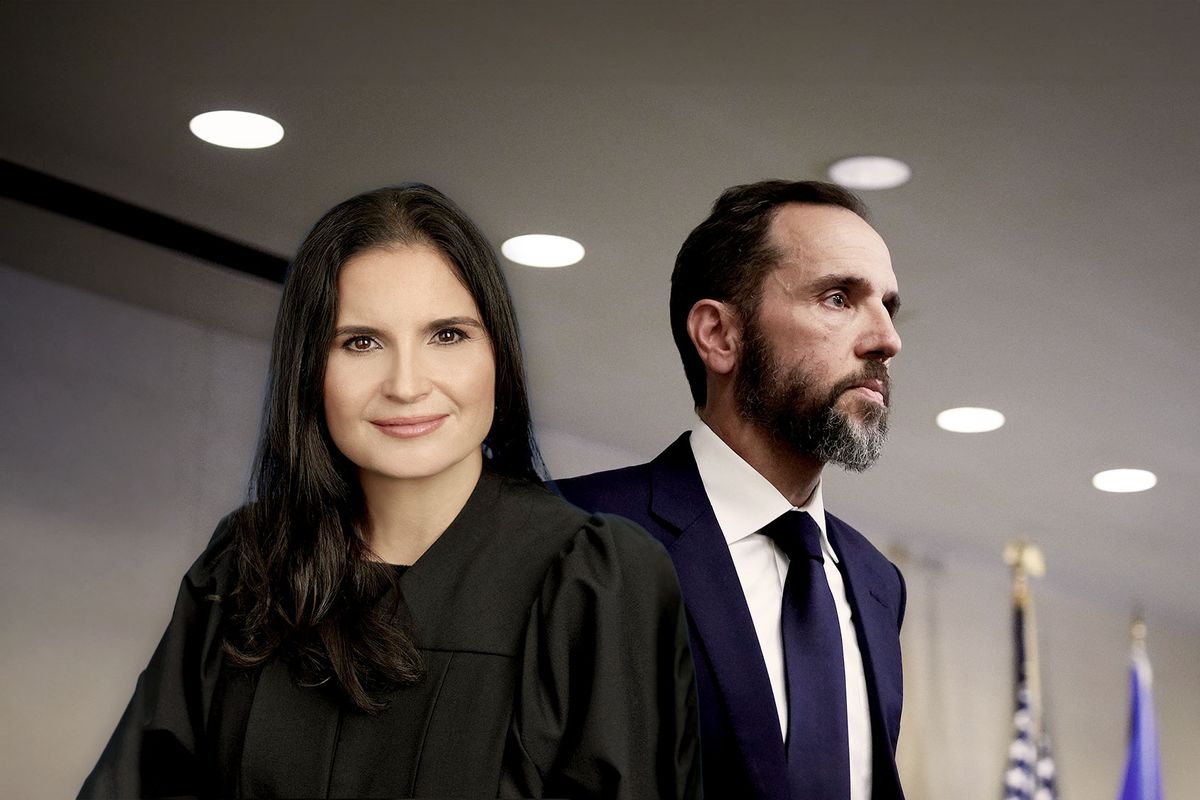Two Trump-appointed judges, both asked to consider whether a special counsel can investigate the former president and his allies, have now produced two wildly different outcomes — a sign, perhaps, of how reactionaries on the federal judiciary have been emboldened over the years and now feel at liberty to rule as they wish.
Six years ago, U.S. District Judge Dabney Friedrich, appointed by former President Donald Trump in 2017, ruled that the appointment of special counsel Robert Mueller had not exceeded his authority by prosecuting associates of the man who appointed her, adding that his original appointment to the position “does not violate” the Constitution nor its “core separation of-powers principles.” Three other federal judges who considered that exact question ruled the same.
Yesterday, though, U.S. District Judge Aileen Cannon, appointed by Trump in 2020, ruled the opposite: that the appointment of special counsel Jack Smith, who filed charges against the former president for hoarding state secrets at Mar-a-Lago, was a clear and direct violation of the country’s founding document — indeed, a “substantial separation-of-powers violation.” Although Attorney General Merrick Garland exercises ultimate control over Smith, Cannon wrote that only Congress could authorize and fund an investigation led by an independent prosecutor.
Here, at last, was a conservative judge seeking to curtail the power of the unitary executive (even as another special counsel continues to pursue legal action against the current president’s son). But while Cannon cited a recent opinion issued by conservative Supreme Court Justice Clarence Thomas, many legal experts accused her of ignoring decades of legal precedent to dismiss a case that she was accused of intentionally delaying for more than a year, ensuring that Trump would never stand trial in a case widely considered the strongest against him.
“She stands alone,” Andrew Weissmann, a former federal prosecutor who worked on Mueller’s Russia investigation, commented on MSNBC. Monday’s ruling, he said, stands “in distinct contrast to all the other cases that have dealt with this,” noting that, in addition to his son, President Joe Biden has himself been interviewed by a special counsel, Robert Hur, with no other court ever ruling against his authority.
But Weissmann welcomed the clarity Cannon has now provided — and grist for Smith to appeal her decision to the very court that twice overturned her before.
“What she is doing in many ways is putting in writing what she has done de facto in this case,” he said. “She has delayed this case at every step. The one difference now is, by making this ruling in writing, not just slowing the case to a complete standstill, which has been her wont, this can go to the 11th Circuit.”
Smith’s office has already said he intends to do just that.
We need your help to stay independent
“The dismissal of the case deviates from the uniform conclusion of all previous courts to have considered the issue that the Attorney General is statutorily authorized to appoint a Special Counsel,” a spokesperson said in a statement. “The Justice Department has authorized the Special Counsel to appeal the court’s order.”
The 11th Circuit Court of Appeals could do more than just reverse Cannon.
Barbara McQuade, a former U.S. attorney who teaches law at the University of Michigan, told The Washington Post that Cannon’s dismissal of the case may actually be welcomed at the Justice Department.
“This ruling may be a blessing in disguise for Jack Smith,” she said, noting he can not only appeal her decision but “ask the court to replace Cannon as the judge on this case.”
Want a daily wrap-up of all the news and commentary Salon has to offer? Subscribe to our morning newsletter, Crash Course.
That’s the positive: that while the case may not go to trial before November, it was never going to under Cannon — and at least under a different judge it might be a fair fight.
The more negative: Cannon’s decision shows that there is a pro-Trump coup of sorts taking place in the federal judiciary.
Rather than dwell on Cannon’s mangling of the law, Harry Litman, a former U.S. attorney who writes for the Los Angeles Times, argued that it’s best to put the decision in a political context.
“It’s more useful and illuminating to think of the dismissal as the first court decision of Project 2025, in which the rule of law takes an unabashed back seat to the preeminent principle of loyalty to Trump,” Litman wrote, referring to the Heritage Foundation's far-right plan for a second Trump administration. That’s the only way to read the efforts by Cannon (and the Supreme Court, frankly) to twist the Constitution in such a way as to benefit one man who has called for terminating the country’s founding document, he continued: “that this is entirely a matter of loyalty, not law.”
Read more
about the right-wing judiciary



Shares